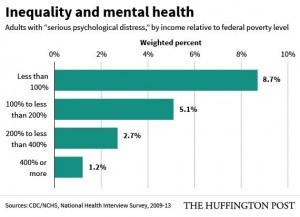Lately there’s a growing appreciation of stress hormones. Stress hormones like cortisol are our natural defences against everyday challenges that might hurt us mentally or emotionally.
“You think that stress is bad, but research shows that in moderation and with the proper resources, not all stress is bad,” said Elisabeth Conradt, assistant professor of psychology at the University of Utah.” CNN, June 1, 2015
Emma Adam writes in the Huffington Post that, “Stress hormones such as cortisol exist for a reason, and cortisol helps us in all sorts of surprising and important ways. In short, stress hormones can be good for you!”
Here’s four ways stress hormone cortisol helps you.
- Helps wake you up. You wouldn’t think that a stress hormone would help wake you up but it does. Your cortisol levels surge in the first half hour of waking, releasing glucose into your blood to help you overcome sleepiness. There’s a saying that waking up is itself a stressful experience for your body. If you have a lot more to do on a given day, your cortisol levels will be higher because of the extra demands your day will have. In fact, if you are sad or lonely the day before, your stress hormone surge will be bigger the next morning.
- Helps you face stressful events. Your cortisol levels go up whenever you feel stressed. That’s good. It gives you energy, helps you focus on the stressful event, and suppress less important body processes like digestion. Cortisol can even temporarily reduce fatigue because the quick energy and increased focus makes you forget you’re tired.
- Optimizes your cognition. Moderate amounts of cortisol help with thinking. Cortisol helps with information retention, problem solving, and paying attention to information. Executive functioning is when your cortisol levels are optimally performing – high in the morning with a steady decline throughout the day. That’s why it’s a great idea to schedule important things for mornings because your cortisol levels are helping your brain be the best it can be at that time.
- Regulates your immune system. When cortisol levels are too low, immune system over-activity becomes a problem. For instance, autoimmune disorders are caused by low cortisol levels. Cortisol also helps control inflammation because it is a type of glucocorticoid. Great for asthma and rashes.
Your stress hormone cortisol helps you daily, regulating your body and keeping you emotionally and mentally balanced. Stress is part of living, but not all stress is bad.


